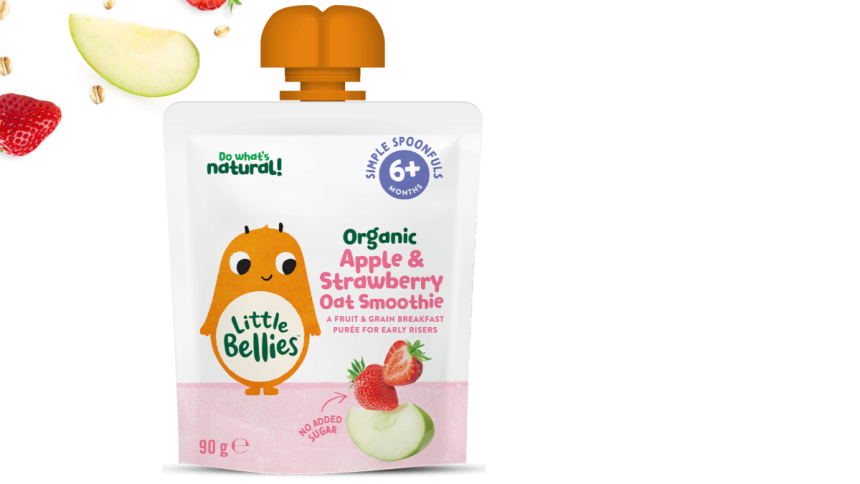The arrival of a tiny human brings immense joy but also a newfound awareness of the ever-expanding list of needs. Among these, healthy and convenient baby snacks play an important role in a baby’s development. However, with a growing appetite, concerns about nutrition, and a desire to be budget-conscious, parents can find themselves overwhelmed. This article helps you create a snack station stocked with affordable and nutritious options for your little one.
Prioritising Stages and Needs
Babies progress rapidly through developmental stages, and their snacking needs evolve accordingly. For infants starting at around six months, purees made from fruits, vegetables, or a combination of both are a perfect introduction to solid foods. These can be easily made at home, ensuring quality control and cost-effectiveness. Steaming or roasting fruits and vegetables allows for the retention of essential nutrients. Also, mashing them with a fork or using a food processor creates a smooth consistency suitable for young eaters. Additionally, you can buy organic and naturalsnacks.
Nature’s Candy: Fruits and Vegetables
Fruits and vegetables are nature’s candy, packed with vitamins, minerals, and fibre. These vibrant options provide essential nutrients and expose babies to various tastes and textures, encouraging a healthy palate for the future. Mashed bananas, avocado, or sweet potato are excellent first options. As babies develop their pincer grasp, around 8-10 months, consider offering steamed or roasted veggie sticks like broccoli florets, sweet potato wedges, or peeled cucumber slices. These can be a great way to introduce new flavours and textures while encouraging self-feeding.
Beyond the Basics: Expanding the Snacking Collection
While fruits and vegetables are a cornerstone of a healthy diet, incorporating other nutritious options can provide a well-rounded snacking experience. Here are some ideas to consider:
Whole Grains: Snacks likeunsweetened puffs are a popular choice, but be mindful of portion sizes, as they can be quite high in calories. For a more substantial option, whole-wheat toast fingers with a smear of nut butter (ensure nut allergies are not present) can be a filling and nutrient-rich snack.
Protein Powerhouses: Mashed cooked beans or lentils provide protein and fibre, essential for growth and development. Hard-boiled egg yolks (after checking for allergies) are another great source of protein or healthy fats.
Healthy Fats: Avocados are a natural source of healthy fats, essential for brain development. Mashed avocado on whole-wheat crackers or pick-me sticks can be a satisfying and nutritious combination.
Yoghurt for a Calcium Boost
Around one year of age, yoghurt can be introduced as a nutritious option. Choose plain, whole-milk yoghurt for a calcium and protein boost. For added flavour and sweetness, mash in some fresh or frozen fruit. Opt for unsweetened varieties to avoid introducing unnecessary sugar. You can also choose baby snackoptions like yoghurt sticks made from a variety of flavours.
Balancing Sweet and Savoury
While it’s natural to want to appease a sweet tooth, it’s important to expose babies to a variety of flavours. Offer savoury options alongside sweet ones. This not only helps develop a well-rounded palate but also ensures a balanced ingestion of nutrients.
Savory Inspiration
Sprouted Grains: Sprouted whole-wheat toast with mashed avocado or a dollop of ricotta cheese can be a delightful combination of textures and flavours.
Cottage Cheese: This protein-rich option can be mashed with a bit of fruit for a sweet and savoury snack.
Hummus: Opt for a low-sodium version and pair it with whole-wheat crackers or veggie sticks for a dip-and-eat experience.
Building a Well-Stocked Snack Station
With a little planning, you can create a well-stocked station that caters to your baby’s growing needs without breaking the bank. Here are some tips for creating a functional and budget-friendly snack haven.
Planning Is Key: Plan your grocery list around seasonal produce, which is typically more affordable and fresher. Utilise freezer containers for portioning homemade purees, and keep a stash of cut-up fruits and vegetables ready for easy access.
Embrace Batch Cooking: Cook a large batch of lentils or beans on the weekend and portion them into containers for easy preparation throughout the week.
Get Creative with Leftovers: Mashed leftover sweet potato or roasted vegetables can be transformed into delicious and nutritious snacks for your little one.
DIY Mix: Make your own trail mix using a combination of dried fruits (cut into small pieces for safety), unsalted nuts (ensure nut allergies are not present), and whole-grain cereal for a portable and satisfying snack option.
Snacks: For parents looking to prioritise organic and natural options for their baby’s snacking needs, there are plenty of choices available that are both nutritious and budget-friendly. Opting for baby snacks made from organic fruits and vegetables is a great option. Choosing these can provide peace of mind for parents who want to prioritise their baby’s health and well-being.
Whether it’s a mid-morning munch or an afternoon pick-me-up, having a well-stocked snack station can be a game-changer. With a bit of smart shopping, parents can whip up nutritious and delicious treats that will keep their babies satisfied without draining their wallets.
Lynn Martelli is an editor at Readability. She received her MFA in Creative Writing from Antioch University and has worked as an editor for over 10 years. Lynn has edited a wide variety of books, including fiction, non-fiction, memoirs, and more. In her free time, Lynn enjoys reading, writing, and spending time with her family and friends.















